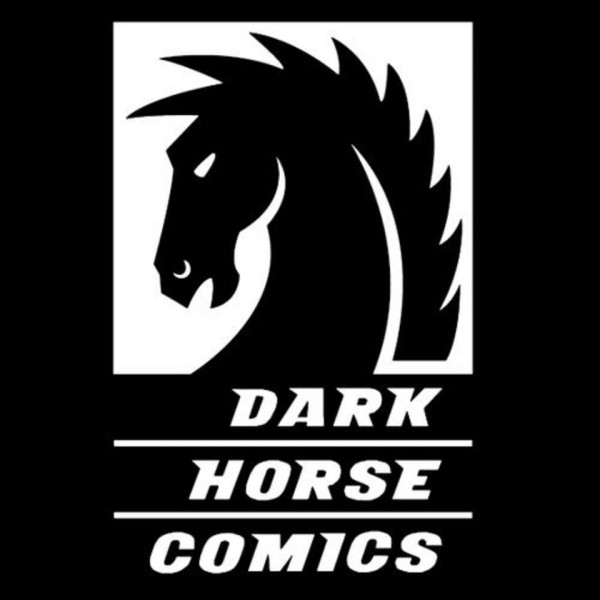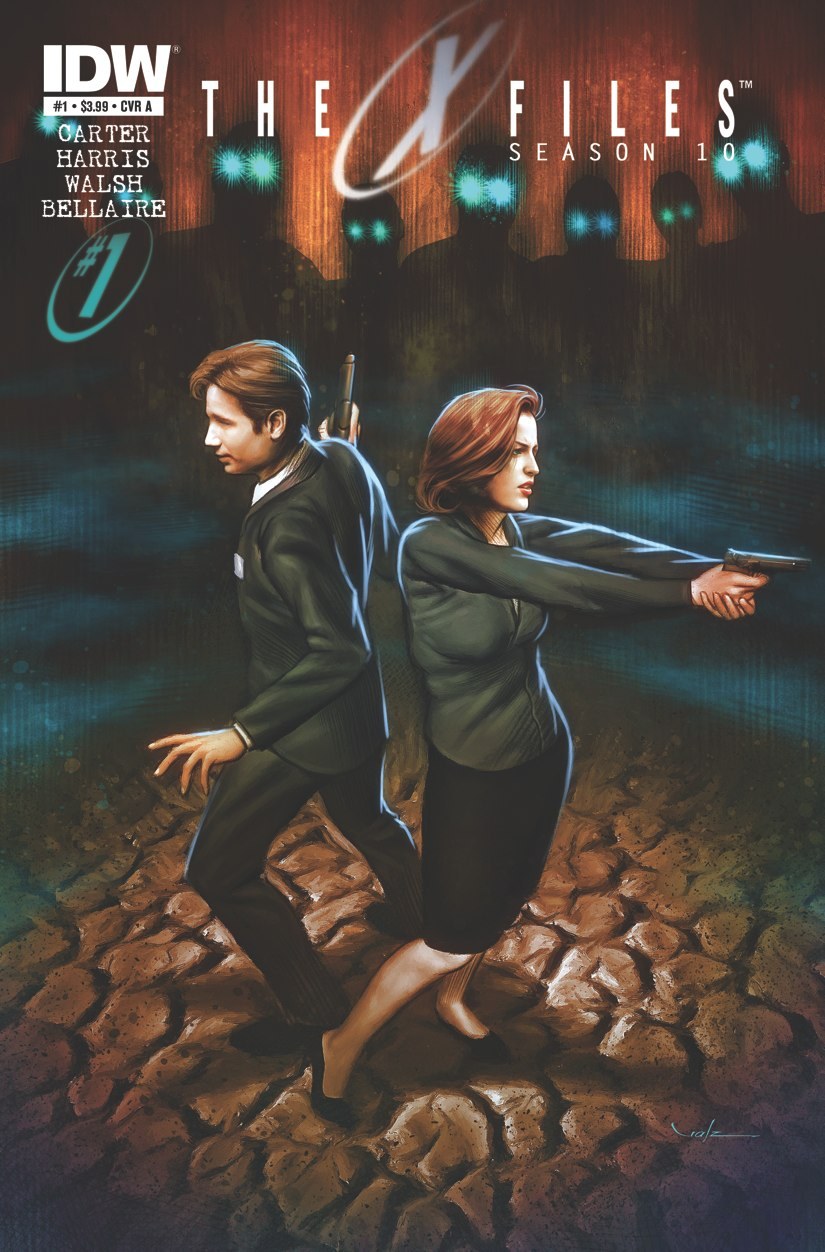What Can the Comic Industry Do About Harassment?
In many ways, women in comic books are more prominent than ever, both creators and fans. However, that does not mean that there are still problems regarding how women are treated in the comic book industry. This past week, there were a number of articles regarding the long history of harassment in comics. So what should comic book companies do to prevent harassment in the future?

Dark Horse Comics President Mike Richardson released a statement regarding the charges of sexual harassment levied against editor (and former Editor-in-Chief) Scott Allie. Ironically, the alleged harassment that prompted Richardson’s statement occurred against a man, writer Joe Harris (
The X-Files: Season 10). According to the allegations, Allie inappropriately grabbed and bit Harris at a BOOM! Studios party during San Diego Comic Con. Allie has apologized and Richardson stated that they have taken action against Allie and will continue efforts to prevent this type of thing in the future.
Comics journalist Janelle Asselin wrote an
article that alleged that many Dark Horse staffers felt that harassment and inappropriate behavior extended beyond this particular incident. Fellow journalist
Heidi McDonald wrote about some incidents that demonstrate a long-standing history of sexual harassment towards female creators and staffers in the comics industry. The articles are a troubling look at a significant problem that has affected comics for a long time.

One of the most important ways that sexual harassment can be reduced is to increase the presence of women not just in creative roles but in decision-making positions in comic book companies. While the increased prominence of comic creators is a good step forward, there also needs to be more in editorial positions and important places in the administration. There are certainly a number of very good female editors in comics, such as Ellie Pyle (Vertigo,
Daredevil) and Sana Amanat (
Ms. Marvel), and hopefully those numbers will increase.
Another way that comics can help prevent harassment against women and men is to require a level of professionalism from employees. No one expects comic book companies to be run like banks or insurance companies. There is a casual and eccentric element to loving comics and working in the industry that should be embraced. That extends to social interaction at comic conventions. However, it doesn’t include acting unhinged, demeaning, aggressive or sexually inappropriate. Expecting professionalism from comic book employees (and even freelancers) isn’t asking too much. This is a job, after all. Furthermore, companies should not tolerate abusive behavior (sexual or not) from male or female employees.

It’s not just employees that contribute to harassment in the comic book industry. Fans play a part in this as well. As social media becomes more pervasive, fans have a larger voice and can even interact with creators. So online harassment of creators and other fans can become very prominent and hurtful. It occurs at conventions as well. There is not much that comic companies can do against fan harassment other than to speak out against it. However, they must also set a good example, because their words won’t mean as much if the companies’ own actions don’t show a commitment to a fair and respectful environment.
As a whole industry, comics are certainly more inclusive of women than in the past. There is still room for improvement. There is also a need for more people of color in both creative and decision-making roles. Whether there is an ingrained industry-wide problem and/or an “old-boys network,” things need to progress so that disrespect and harassment are no longer a big part of comic book world and incidents like the Allie one are few and far between.
 Dark Horse Comics President Mike Richardson released a statement regarding the charges of sexual harassment levied against editor (and former Editor-in-Chief) Scott Allie. Ironically, the alleged harassment that prompted Richardson’s statement occurred against a man, writer Joe Harris (The X-Files: Season 10). According to the allegations, Allie inappropriately grabbed and bit Harris at a BOOM! Studios party during San Diego Comic Con. Allie has apologized and Richardson stated that they have taken action against Allie and will continue efforts to prevent this type of thing in the future.
Comics journalist Janelle Asselin wrote an article that alleged that many Dark Horse staffers felt that harassment and inappropriate behavior extended beyond this particular incident. Fellow journalist Heidi McDonald wrote about some incidents that demonstrate a long-standing history of sexual harassment towards female creators and staffers in the comics industry. The articles are a troubling look at a significant problem that has affected comics for a long time.
Dark Horse Comics President Mike Richardson released a statement regarding the charges of sexual harassment levied against editor (and former Editor-in-Chief) Scott Allie. Ironically, the alleged harassment that prompted Richardson’s statement occurred against a man, writer Joe Harris (The X-Files: Season 10). According to the allegations, Allie inappropriately grabbed and bit Harris at a BOOM! Studios party during San Diego Comic Con. Allie has apologized and Richardson stated that they have taken action against Allie and will continue efforts to prevent this type of thing in the future.
Comics journalist Janelle Asselin wrote an article that alleged that many Dark Horse staffers felt that harassment and inappropriate behavior extended beyond this particular incident. Fellow journalist Heidi McDonald wrote about some incidents that demonstrate a long-standing history of sexual harassment towards female creators and staffers in the comics industry. The articles are a troubling look at a significant problem that has affected comics for a long time.
 One of the most important ways that sexual harassment can be reduced is to increase the presence of women not just in creative roles but in decision-making positions in comic book companies. While the increased prominence of comic creators is a good step forward, there also needs to be more in editorial positions and important places in the administration. There are certainly a number of very good female editors in comics, such as Ellie Pyle (Vertigo, Daredevil) and Sana Amanat (Ms. Marvel), and hopefully those numbers will increase.
Another way that comics can help prevent harassment against women and men is to require a level of professionalism from employees. No one expects comic book companies to be run like banks or insurance companies. There is a casual and eccentric element to loving comics and working in the industry that should be embraced. That extends to social interaction at comic conventions. However, it doesn’t include acting unhinged, demeaning, aggressive or sexually inappropriate. Expecting professionalism from comic book employees (and even freelancers) isn’t asking too much. This is a job, after all. Furthermore, companies should not tolerate abusive behavior (sexual or not) from male or female employees.
One of the most important ways that sexual harassment can be reduced is to increase the presence of women not just in creative roles but in decision-making positions in comic book companies. While the increased prominence of comic creators is a good step forward, there also needs to be more in editorial positions and important places in the administration. There are certainly a number of very good female editors in comics, such as Ellie Pyle (Vertigo, Daredevil) and Sana Amanat (Ms. Marvel), and hopefully those numbers will increase.
Another way that comics can help prevent harassment against women and men is to require a level of professionalism from employees. No one expects comic book companies to be run like banks or insurance companies. There is a casual and eccentric element to loving comics and working in the industry that should be embraced. That extends to social interaction at comic conventions. However, it doesn’t include acting unhinged, demeaning, aggressive or sexually inappropriate. Expecting professionalism from comic book employees (and even freelancers) isn’t asking too much. This is a job, after all. Furthermore, companies should not tolerate abusive behavior (sexual or not) from male or female employees.
 It’s not just employees that contribute to harassment in the comic book industry. Fans play a part in this as well. As social media becomes more pervasive, fans have a larger voice and can even interact with creators. So online harassment of creators and other fans can become very prominent and hurtful. It occurs at conventions as well. There is not much that comic companies can do against fan harassment other than to speak out against it. However, they must also set a good example, because their words won’t mean as much if the companies’ own actions don’t show a commitment to a fair and respectful environment.
As a whole industry, comics are certainly more inclusive of women than in the past. There is still room for improvement. There is also a need for more people of color in both creative and decision-making roles. Whether there is an ingrained industry-wide problem and/or an “old-boys network,” things need to progress so that disrespect and harassment are no longer a big part of comic book world and incidents like the Allie one are few and far between.
It’s not just employees that contribute to harassment in the comic book industry. Fans play a part in this as well. As social media becomes more pervasive, fans have a larger voice and can even interact with creators. So online harassment of creators and other fans can become very prominent and hurtful. It occurs at conventions as well. There is not much that comic companies can do against fan harassment other than to speak out against it. However, they must also set a good example, because their words won’t mean as much if the companies’ own actions don’t show a commitment to a fair and respectful environment.
As a whole industry, comics are certainly more inclusive of women than in the past. There is still room for improvement. There is also a need for more people of color in both creative and decision-making roles. Whether there is an ingrained industry-wide problem and/or an “old-boys network,” things need to progress so that disrespect and harassment are no longer a big part of comic book world and incidents like the Allie one are few and far between.